Backcountry Guide . . . Outdoor Educator . . . What’s the Difference?
Outdoor EducationIf you’re considering a career in the field of outdoor education and adventure programming that involves leading groups through remote wilderness areas, your career path will come to a fork in the road where you will face an important choice: Do you want to become a backcountry guide or an outdoor educator?
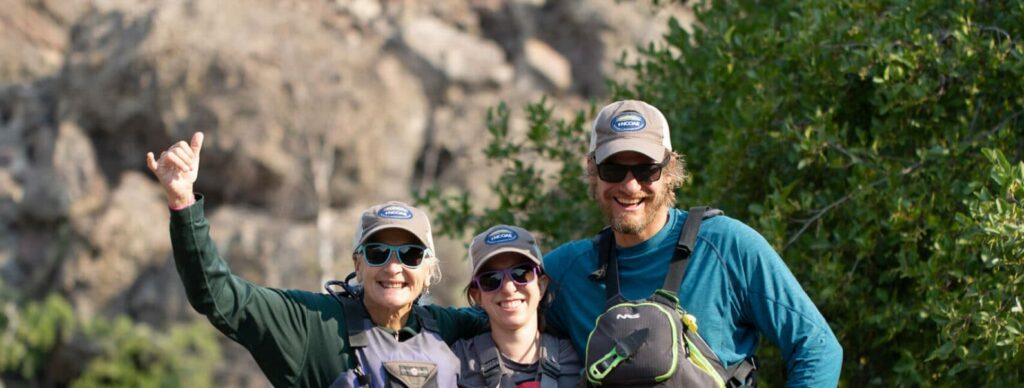
At first glance, these two roles may appear to be too similar to matter, but they serve distinct purposes. While both require expertise in risk management, their focus and approach differ considerably. In general, the differences boil down to the following:
- A backcountry guide is primarily responsible for leading groups safely through remote, rugged environments, with a focus on navigation, logistics, health, and safety.
- An outdoor educator or field instructor does everything a backcountry guide does but with the added responsibilities of teaching wilderness skills, fostering environmental stewardship, and creating opportunities for individual and group personal growth and learning.
In this post, we explore the key similarities and differences between these two roles and what each brings to the outdoor experience.
Recognizing the Similarities
Backcountry guides and outdoor educators (field instructors) are more alike than they are similar. They both have a passion for nature and human-powered outdoor recreation and adventure, and they both share their technical outdoor knowledge and skills freely with others. More specifically, backcountry guides and outdoor educators share the following qualities: (more…)
Advice: Starting an Outdoor Education or Adventure Program in Your School
Outdoor EducationIn addition to working for The National Center for Outdoor & Adventure Education (NCOAE), I’ve had the good fortune to assist public, private, and charter schools in setting up outdoor education programs for the past 25 years. During that time, I’ve developed a few winning strategies for educators embarking on such adventures.
Some of my more successful programs have included launching a learning farm for a public school system with 32,000 students, transforming schools into outdoor learning labs as a model for a school district, and even helping former inmates return to the world beyond bars by diving deep into outdoor experiences. (You can learn more about some my school-related work by reading “Taking Learning Outdoors: Merrick-Moore Elementary” on The Great Trails State Coalition website.)
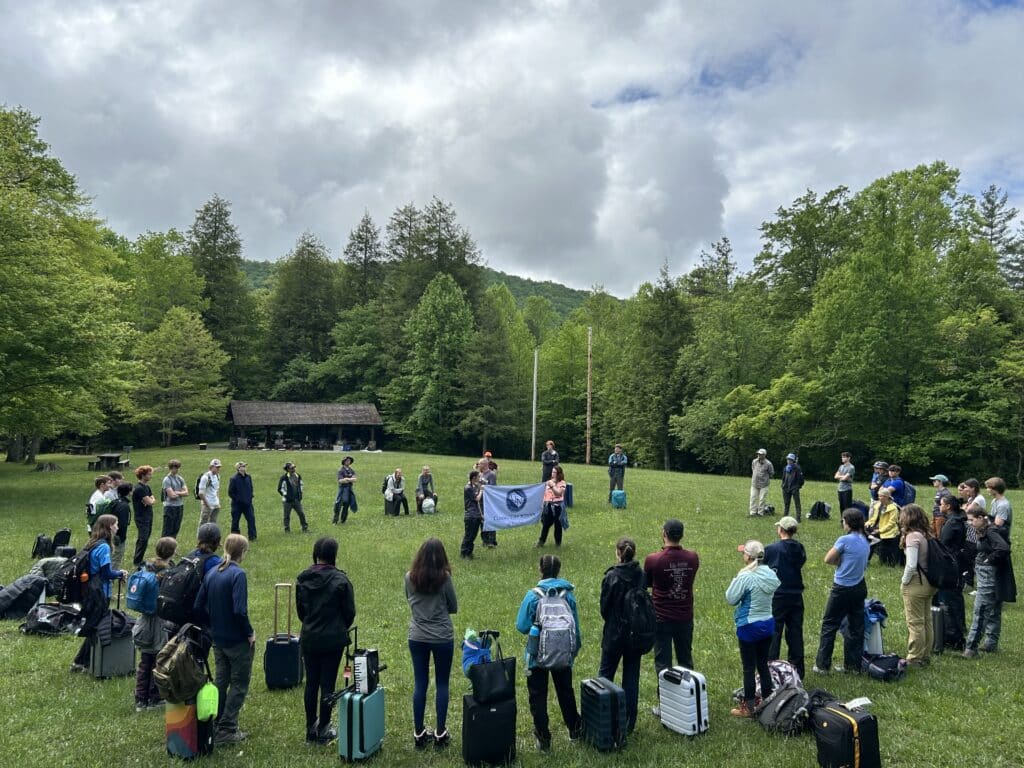
None of these projects were easy, but they can be done. In this post, I offer insights on how to start an outdoor education or adventure program for your classroom or school. Let’s begin with planning and dreaming.
Have a Dream, Plan Your Work, and Work Your Plan
To successfully launch an outdoor education program, it’s important to start with a clear vision and follow a structured plan. Here’s an approach I’ve developed based on both my experiences and the wisdom of my mentors (more…)
Educating the Educators to Ensure Safe and Satisfying Outdoor Adventure and Educational Experiences
Outdoor EducationWhen you’re planning a backcountry-based experiential educational experience for yourself or a child/teen, you want to be sure that the people leading the outdoor program know their stuff. Few things are scarier in life — or potentially deadlier — than being ill-prepared in the wilderness.
To ensure safety and an enjoyable, fulfilling experience, outdoor educators and field instructors must be highly skilled in many facets of outdoor and adventure education, including the following:
- Wilderness medicine
- Map and compass navigation
- Environmental stewardship principles and practices
- Backpacking planning and packing
- Wilderness shelters
- Backcountry cooking, water purification, and food safety
- Paddling techniques and boat safety (canoe, kayak, or raft)
- Climbing
- Leadership
One of the reasons we here at The National Center for Outdoor Adventure and Education (NCOAE) excel at delivering safe, enjoyable, and transformative outdoor adventures is that we educate our educators. We provide our field instructors with the training and opportunities to pursue the certifications they need to achieve best-in-class status.
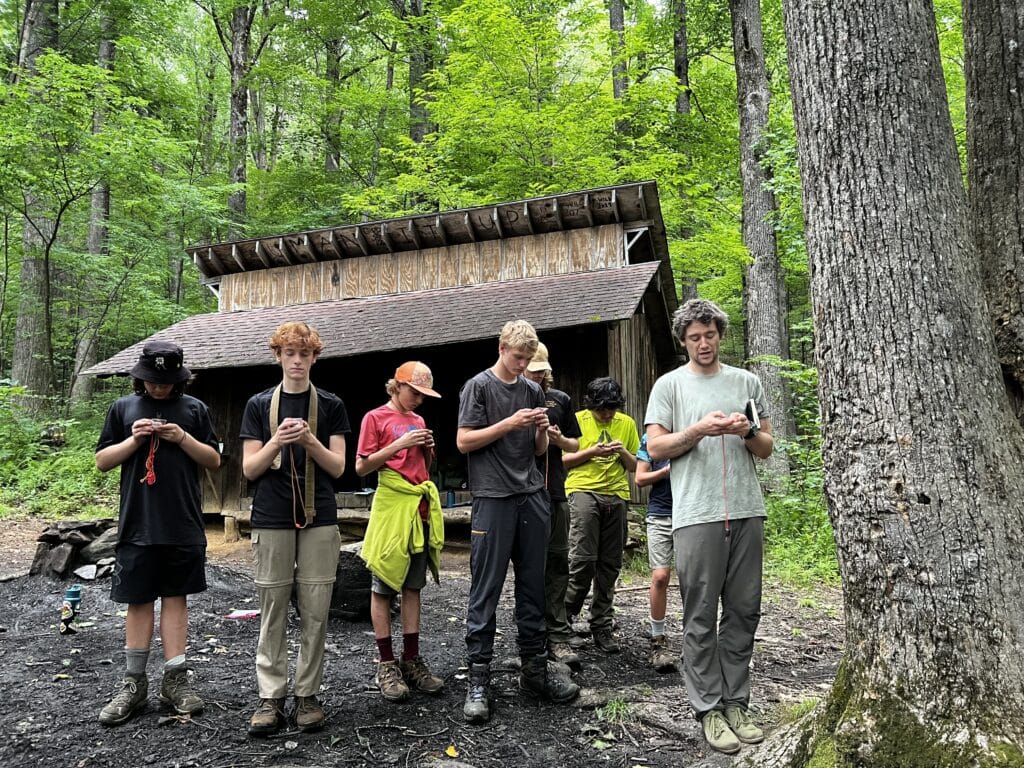
Field Instructors and Guides: There IS a Big Difference
NCOAE outdoor educators and field instructors are not just “guides.” They are experienced outdoor educators with a broad range of responsibilities that include the following: (more…)
The Value of Outdoor Education to Your Students and School’s Curriculum
Outdoor EducationFor as long as we can remember, private and independent schools have recognized the transformative power of experiential learning, and that’s particularly true when it involves outdoor and adventure-based activities. While all educators are trained and encouraged to seek innovative ways to engage students in their own education, private and independent schools have traditionally been more likely to partner with an organization like ours to create a custom outdoor program that reinforces their curriculum and culture.
Here at The National Center for Outdoor Adventure and Education (NCOAE), we assist all types of schools — including private and independent ones — to seamlessly incorporate outdoor and adventure-based experiential education into their curricula.
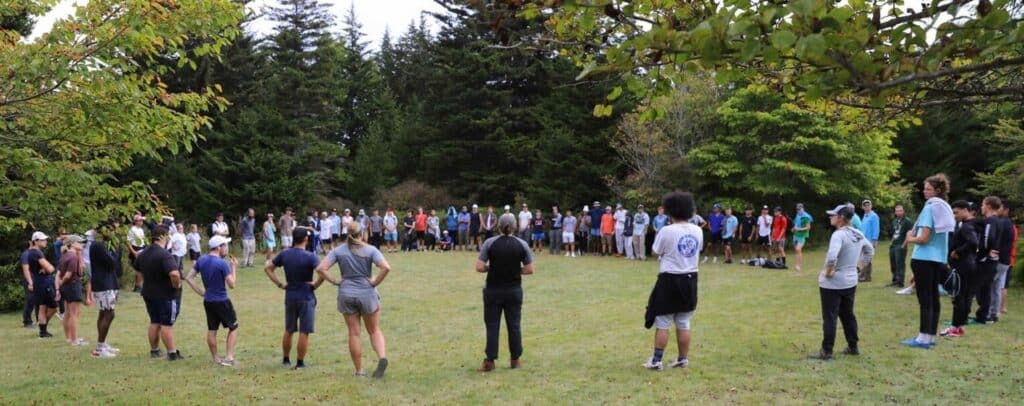
By exploring the benefits, practical considerations, and implementation strategies, we work closely with these schools to enhance their educational offerings. And when we succeed, we find we have awakened and nurtured a sense of adventure in their students. In addition, we have supported the development of well-rounded youth who are better equipped for success in academics, peer interactions, and the communities in which they live.
Benefits for Students
Participation in our highly customized and curriculum-based outdoor education programs contributes to higher student retention rates, higher grade averages, and positive changes in a student’s “Five C’s” — Competence, Character, Connection, Confidence, and Caring.
At NCOAE, our custom programs for private, independent, and even open enrollment summer camp expeditions for teens are built on our Theory of Change: (more…)
Leadership Skills & Personal Development are Backcountry Bonuses at NCOAE
Outdoor EducationEditor’s Note: Today’s post is the 250th since we launched our blog in December of 2013. And what better way to mark the occasion than by publishing a post about the efficacy of outdoor and adventure-based experiential education. Thank you to everyone who has been along for the ride so far. From our writers and editors to our readers and those who choose to share our posts, we appreciate the opportunity to share our expertise and experience and we look forward to continuing to do so for many years to come.
Leadership Skills, Personal Development are Backcountry Bonuses at NCOAE
By, Elizabeth Shirley, WFR, NCOAE Director of Outdoor Programming & Education
For those of us who work in adventure-based and experiential outdoor education, it’s pretty much a given that backcountry, expedition-style experiences can set students up for success in life, sometimes well beyond the expedition itself. Whether these wilderness experiences include the mountains of Alaska, the rivers of the Pacific Northwest, or the coast of North Carolina, outdoor education expeditions offer an opportunity for meaningful life experiences.
In fact, backcountry courses planned and expertly guided by The National Center for Outdoor & Adventure Education (NCOAE) are intentionally designed expeditions, with a focus on leadership and personal development that goes hand in hand with learning or improving technical outdoor skills and environmental science.
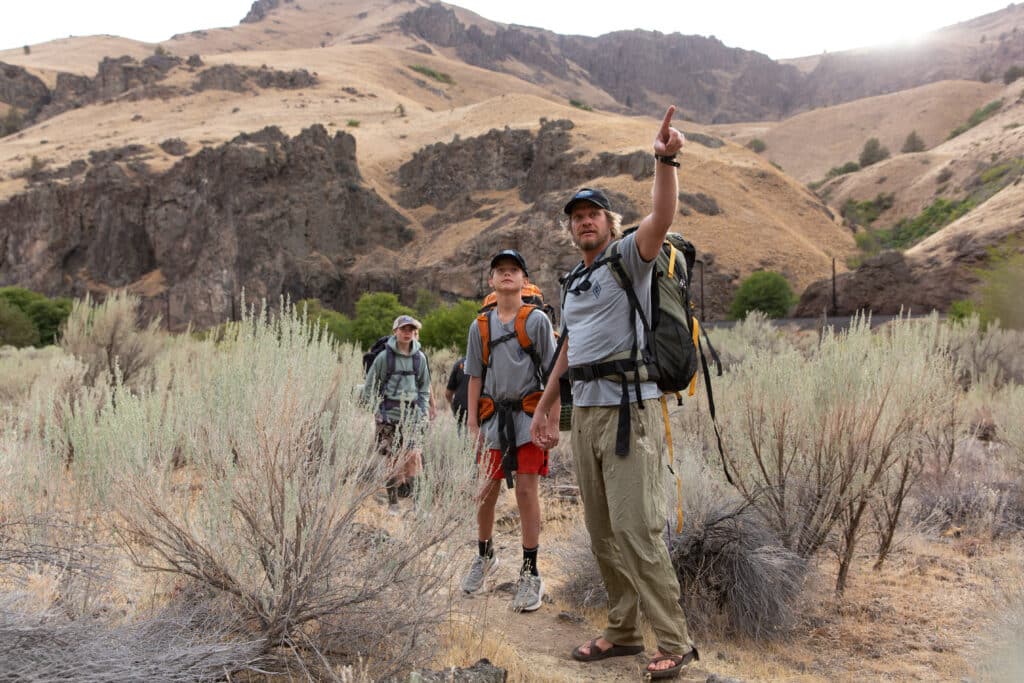
The term “empower” has become a trite and ineffective word in today’s world, much like a father telling his son, “I empower you to mow the lawn.” However, there are numerous occasions during an NCOAE wilderness expedition where students are offered a variety of opportunities to step into leadership roles while in the field.
These assignments include serving as a Leader of the Day — a student charged with making sure the group stays on task and on the trail, utilizing a map and compass. The Cook of the Day guides the assigned expedition members in the preparation of meals and the subsequent cleanup. And the Gear Crew helps the group set up camp, position bear hangs, collect water, and more. Students also participate in a variety of (more…)
The Value of NCOAE’s Curriculum Focusing on Leadership and Personal Growth
Outdoor EducationWhat happens when someone answers the call to outdoor adventure and enrolls in a wilderness education, outdoor education, or backcountry expedition like the ones we offer at The National Center for Outdoor & Adventure Education (NCOAE)?
They’re pretty much guaranteed they’ll be engaged in an experience that involves adventure, challenges, and fun, but most important — learning. I mean, just do the math: “Adventure” and “Education” is at the tail end of our name.
Our Educational Framework (see below) is the basis for what we do within the practice of outdoor education, just as the Experiential Learning Cycle itself defines how we do it, and our Theory of Change explains why we do it.
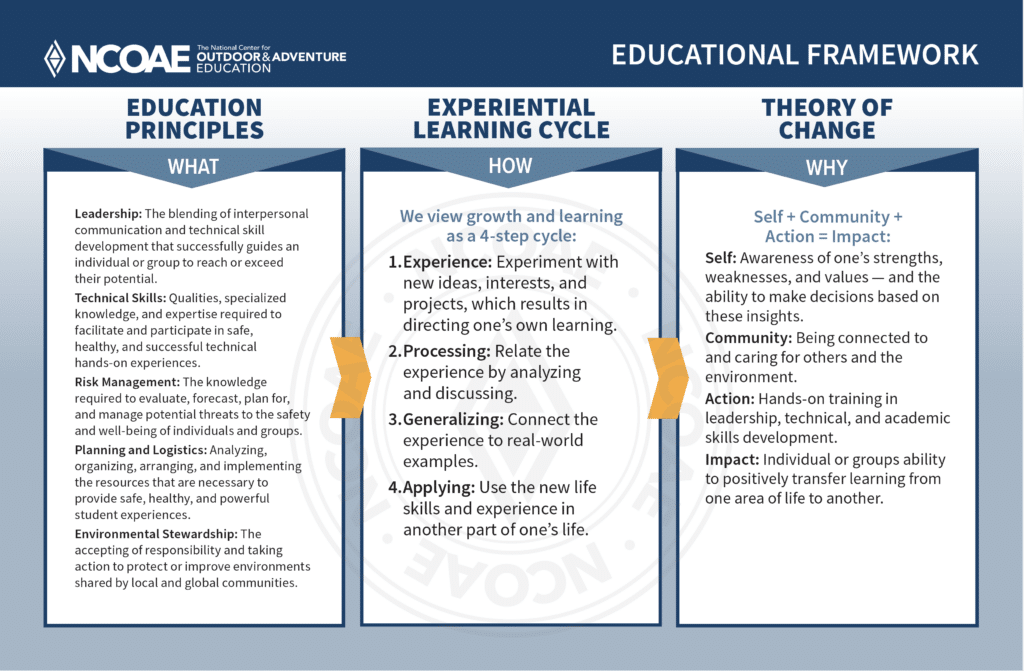
At NCOAE, we are undeniably invested in teaching technical outdoor skills, the science of applying risk management to wilderness and backcountry expeditions, and planning and logistics — the cornerstones of living safely and in relative comfort during an adventure-based expedition. Our course areas are spread across the globe and provide a unique context to engage in lessons on environmental stewardship and Leave No Trace’s principles of outdoor ethics. However, one of the top areas upon which we focus during an NCOAE expedition is leadership.
Our students are guided to process, generalize, and apply what they are experiencing during an NCOAE program, with the ultimate objective of (more…)
Frazzled by Eco-anxiety? Find Respite in the Backcountry
Outdoor EducationAs you’ve probably heard or read, last month was the hottest June our planet has ever experienced — topping a prior record set in 2019. In fact, according to the European Union’s Copernicus Climate Change Service, the nine hottest Junes ever occurred over the past nine years.
In addition, extreme heat creates crispy conditions, and last month’s torrid temps were all the kindling needed to promote the one of the worst wildfire season in Canadian and North American history. Add to that a record-breaking cyclone in southeast Africa, heatwaves across Asia, and extreme flooding throughout the world. Oh, and this just in: June sea ice levels in Antarctic were at their lowest level since scientists began keeping records.
All of this highlights what many of us have sensed and now know for certain: Climate change is upon us — and that’s a scary situation for those of us who work in the outdoor industry. The cumulative effect of all of these climate catastrophes has created what the American Psychology Association (APA) calls “eco-anxiety.”
According to the American Psychology Association, eco-anxiety is “the chronic fear of environmental cataclysm that comes from observing the seemingly irrevocable impact of climate change, and the associated concern for one’s future and that of next generations.”
Media coverage adds to the angst
This fear is evident across our land, with hand-painted yard signs and a variety of bumper stickers on vehicles, all advocating that “Science is Real.” Newspaper editorials push for “immediate action,” or ask, “Are We Too Late?” Such articles often crowd out other headlines and newscast bulletins, which only increases our angst.
These conversations about our planet’s future — most of them based on science — have had an effect on most everyone’s emotional state. Words have weight, words plant ideas. And ideas spread faster than anything else, for good or bad.
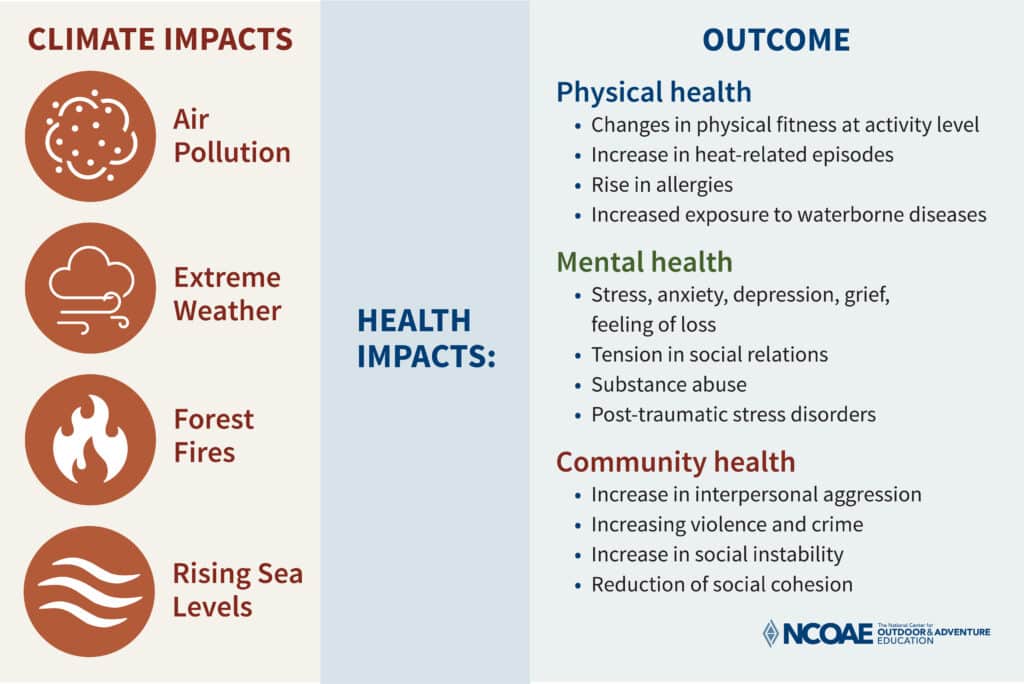
Some people pay attention, some don’t notice, and some dismiss the science out of hand, pushing the notion aside without realizing they are being affected at a cellular level by the emotions that are under the surface. This is what is happening, and sometimes we see it, sometimes we miss it, but in the end we’re all going to feel it personally, or collectively. (more…)
Why Learn Map and Compass Skills in the Age of GPS and Digital Tools?
Outdoor EducationUndoubtedly, you’re either reading this on a smartphone or you’ve got a smartphone in your pocket or sitting on the table or desk in front of you. Most likely, that device features a compass. In fact, the digital app version of one of the most ancient navigational tools in the world comes standard with most cell phones and other mobile devices these days.
Toss in Google Maps, Pacer, Apple Maps, MapMyWalk, Waze, and other directional apps that rely on GPS technology and you’ve got to ask yourself, “Why the heck should I bother using unwieldy paper maps and a handheld compass to explore the backcountry?”
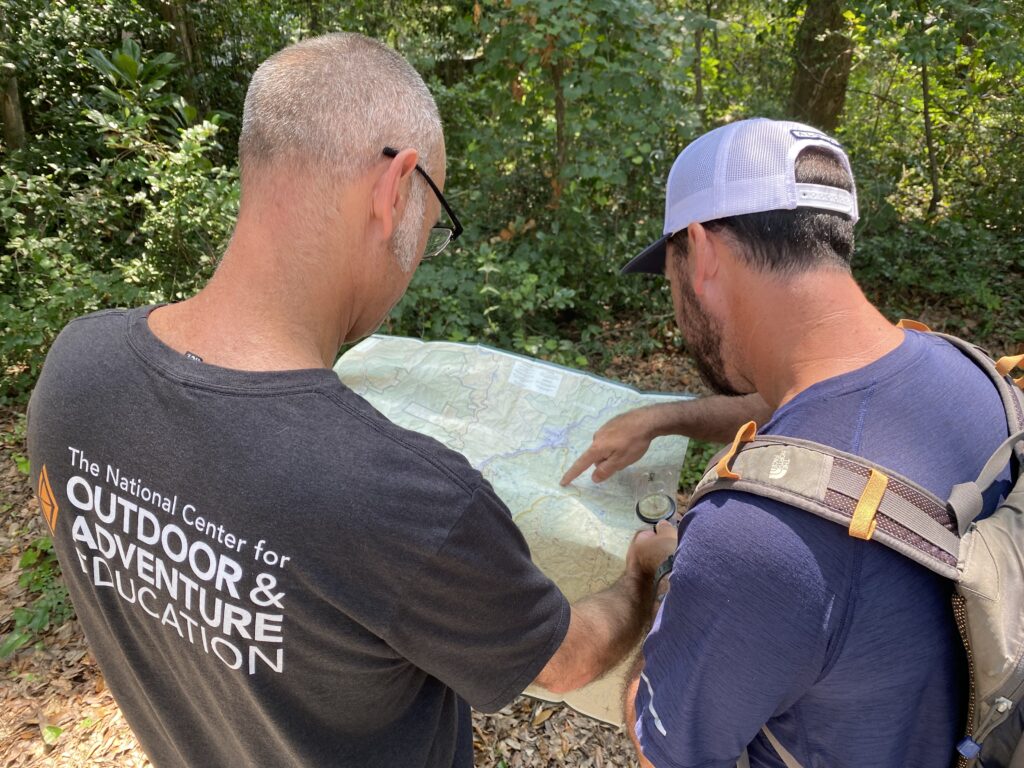
Of course, there are plenty of good reasons to master traditional map and compass skills, the most obvious being, “Damn, I got no signal.”
Here at The National Center for Outdoor and Adventure Education (NCOAE), we include lessons in basic map and compass skills on every expedition we lead. In fact, it’s part of our “First 48” programming, which teaches students important technical skills they’ll need to know within the first two days of any NCOAE backcountry expedition.
During the Fist 48, NCOAE course participants learn the basics of a baseplate compass, as well as how to (more…)
Trending: With Increased Participation Comes a Renewed Focus on Stewardship
Outdoor EducationThis is the last post in our four-part series on trends to be aware of in outdoor and adventure-based experiential education. In Part 1, we covered DEI (diversity, equity, and inclusion). Part 2 focused on restorative practices. And Part 3 called attention to trauma-informed learning.
Here in Part 4, we’re wrapping up the series with a call for action about stewardship.
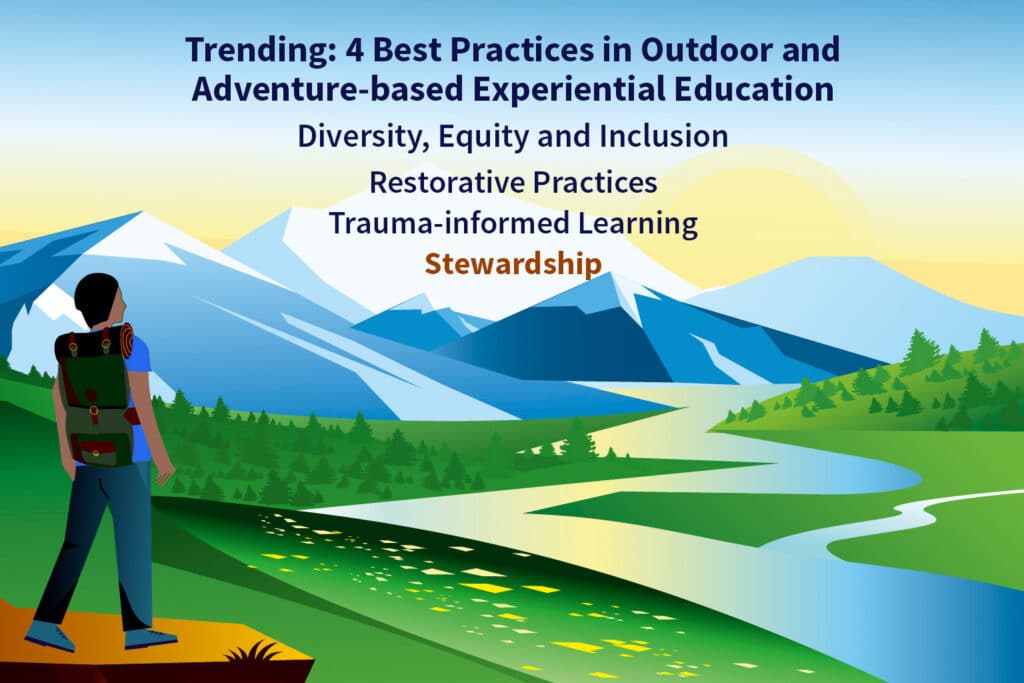
According to research from Pennsylvania State University’s Department of Recreation, Park, and Tourism Management and the Leave No Trace Center for Outdoor Ethics, 13 percent of people who regularly participated in outdoor recreation activities prior to the COVID-19 pandemic, stopped doing so once nationwide lockdowns went into effect.
At the same time, that 13 percent was offset by 20 percent more participation coming from people for whom the researchers say were likely entirely new to recreating in local, state, and national parks.
In New England alone, according to an article published in the journal for the International Association for Society and Natural Resources, overall recreation visitation increased by a whopping 61 percent during the summer of (more…)
Managing Backcountry Rain by Adopting an Expedition Mentality
Outdoor EducationIf you asked me to list the attributes that allowed Sir Ernest Shackleton’s Trans-Antarctic Expedition (1914-1917) to survive more than a year stranded in Antarctica, I point to characteristics like leadership, adaptability, teamwork, ingenuity, and perseverance.
What Shackleton and his men employed was a mindset that intentionally embraced a set of values and behaviors that are essential for success and survival in extreme conditions. Here at The National Center for Outdoor & Adventure Education (NCOAE), we refer to that as having an expedition mentality (and I’ll have more to say about that later in today’s post).
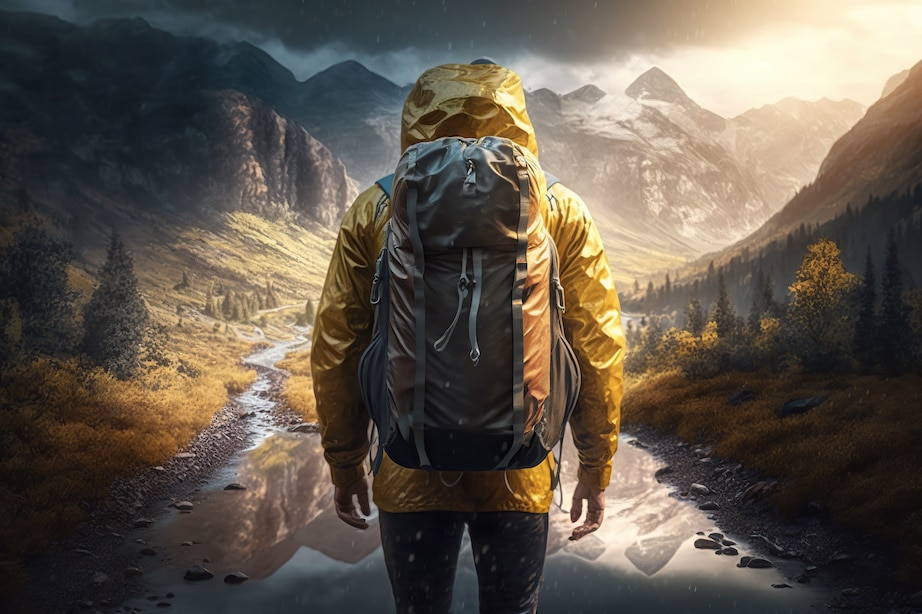
If you’ve ever spent a full week backpacking in the Appalachian Mountains of western North Carolina between May and August, chances are you encountered some rain somewhere on the trail.
That’s because that region of the country — particularly in Pisgah National Forest — encompasses areas categorized as Appalachian temperate rainforest that traditionally receive more than 100 inches of rain per year. Generally, this rain is a (more…)
Trending: Trauma-informed Learning in Outdoor-based Experiential Education
Outdoor EducationWhy We Need Trauma-Informed Learning
Time warp yourself back to early-February of 2020. We were a month into a new decade when news broke that the U.S. Department of Homeland Security had directed all flights from China be routed through one of 11 airports in the United States for enhanced screening procedures and possible quarantine.
A few months later, just as our nation’s students were preparing to end another school year, our country found itself in virtual lockdown.
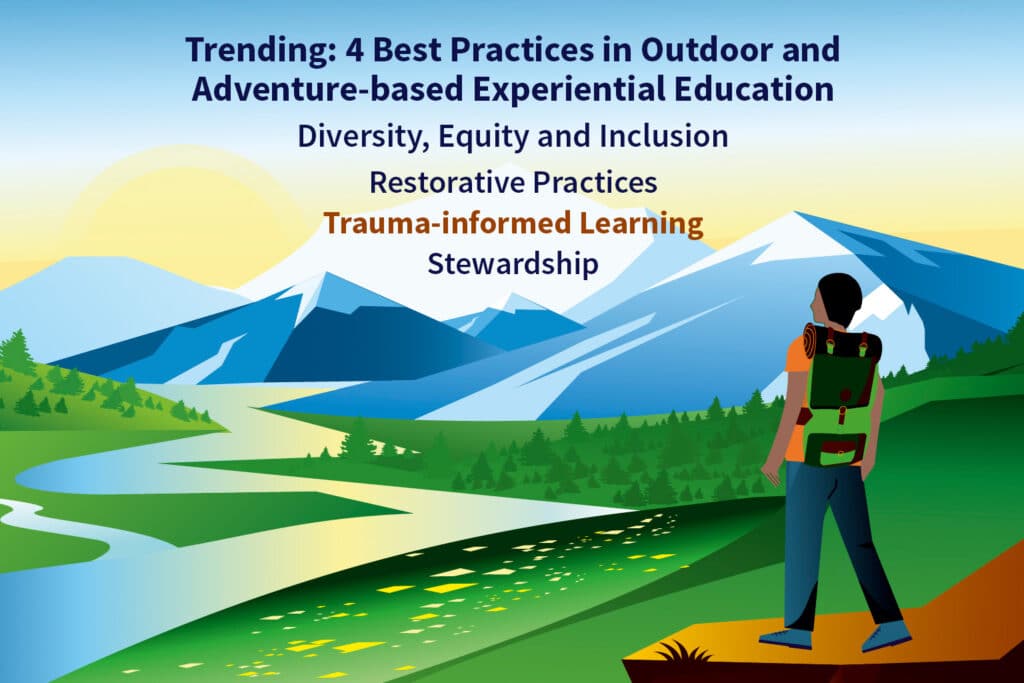
While students of all ages may experience loneliness, anxiousness, and uncertainty, the global health pandemic caused by the virus named “SARS-CoV-2” and the disease it causes — COVID-19 — had an unequivocal impact on school-age youth.
From extreme levels of disengagement and isolation to the loss of school-based nutrition and healthcare programs, we’ve only recently begun to understand how bad it really was. As more children fall behind in terms of social and academic development, the more serious the case for trauma-informed learning and trauma-informed practices in education. (more…)
Trending: Restorative Practices in Outdoor-based Experiential Education
Outdoor EducationA few weeks ago, we published Part 1 of this series, which covers what we here at The National Center for Outdoor & Adventure Education (NCOAE) view as the trending best practices to know about in outdoor and adventure-based experiential education.
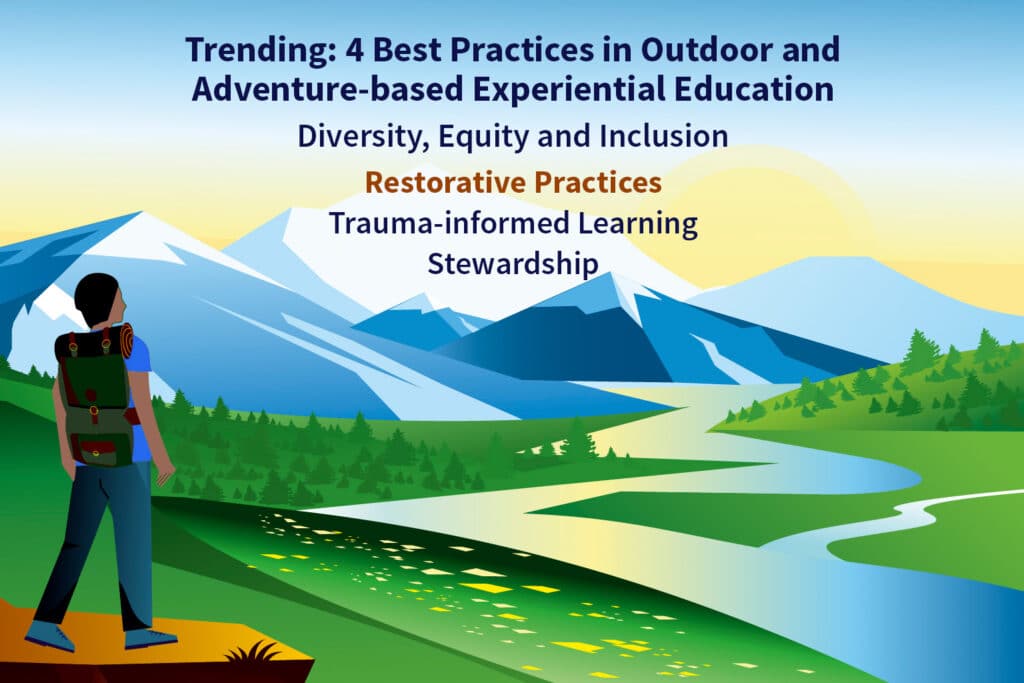
- Here, in Part 2 of this series, we introduce you to Restorative Practices, and share how they’re incorporated in the programming here at NCOAE.
- For Part 3, we will shift our attention to Trauma-Informed Learning.
- And we’ll wrap up the series in Part 4 with a discussion on Stewardship.
At NCOAE we recognize the power of the outdoors and how it can shape the lives of those who participate in our outdoor education courses and wilderness medicine trainings. Take a backcountry teen expedition for example. By experiencing hiking, climbing and paddling, we see physical obstacles turn into (more…)
Trending: 4 Best Practices in Outdoor and Adventure-based Experiential Education
Outdoor EducationA little more than three decades ago, two educators and researchers from Canada partnered with the Association for Experiential Education (AEE) on a groundbreaking book titled Safety Practices in Adventure Programming.
Simon Priest, Ph.D., and Tim Dixon, M.Ed., regarded at the time as among only a handful of leading experts in outdoor adventure education and leadership, penned what some argue was the first widely-published best practices for the outdoor education and adventure programming industry.
Known as the Red Book, due to its bright red cover, their work coincided with AEE’s foray into accreditation, inspiring outdoor education program administrators across the globe to adopt common approaches to the safety and well-being of their clients and staff while facilitating adventure-based programs.
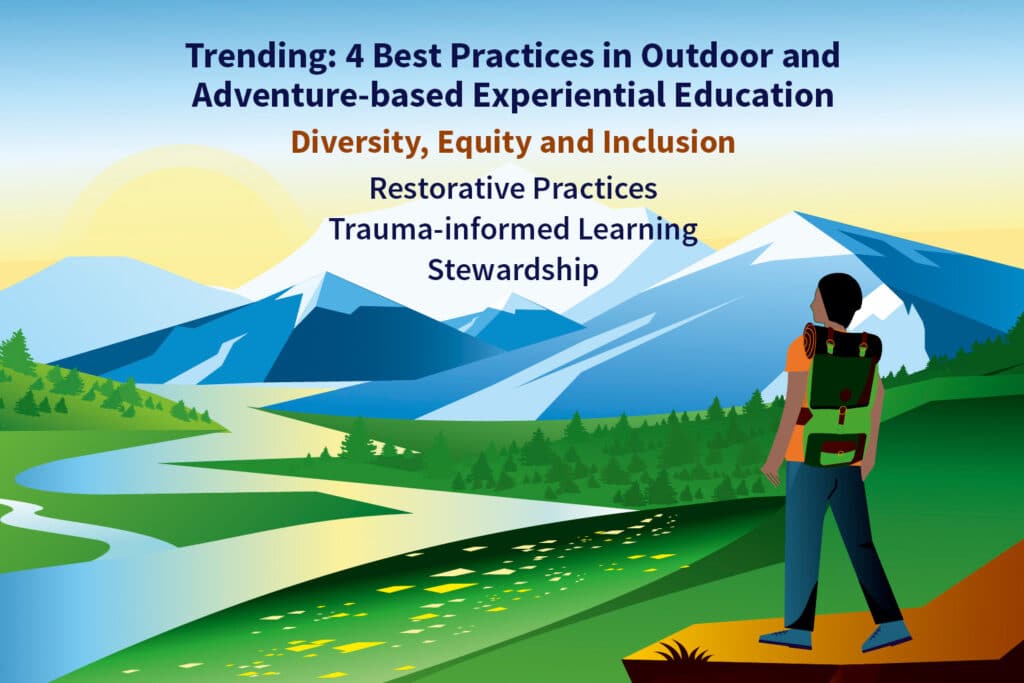
And while it likely isn’t fair to suggest that best practices didn’t exist within our sector of the outdoor industry before Priest and Dixon’s Red Book, the publication of that forward-looking guidance saw the rapid adoption of such practices for our sector like no other. Fast-forward 33 years, and we find most all outdoor education or adventure-based programming operations pay close attention to best practices in the realm of safety and risk management.
In today’s post, I’m pleased to call attention to four areas with associated best practices for which all outdoor educators and adventure-based organizations should be aware. After hearing from college and university outdoor program managers, organizational leaders, and by performing research of our own, four themes rise to the top as trends and best practices in outdoor education and adventure programming to follow over the next year: (more…)
In the Outdoor Industry, Affordable Housing for Outdoor Educators Remains Elusive
Outdoor EducationOne of the major “perks” of working as a field instructor, guide, or senior staff in the outdoor education and adventure-based programming sector of the outdoor industry used to be an offer of free or low-cost housing. Today, that incentive is more elusive, both for employees at our peer organizations and the staff we hire here at The National Center for Outdoor & Adventure Education (NCOAE).
Affordable staff housing — or the lack thereof — tops the list of major financial issues facing those of us who oversee the experiential education programs we run at NCOAE. Our instructors and staff come from around the globe to teach and facilitate our outdoor adventure and education programs. And for us, it has always been important that when they arrive on campus, we attempt to make sure the stress of basic needs does not overshadow the joy of the work.

Carolina Beach, North Carolina, is the closest residential area to NCOAE headquarters, featuring rents that average $1,500 a month. That’s not outrageous if you’re earning $50,000 a year and you consider 30 percent of income for rent as the gold standard for conservative budget management.
But ours is a seasonal business, and part of the problem our sector of the outdoor industry faces is that our staffers don’t make 50 grand a year. In addition, most outdoor education facilities are located in beautiful areas near state and national parks, mountains, beaches, lakes, and other open recreational spaces. Obviously, real estate and rental accommodations are much more costly in such places.
Outdoor Educators Consistently Lack Affordable Housing Options
Fortunately, NCOAE is not located in an area where rent and income gaps are so disparate that staff must move to other locations to survive. However, at the end of the day we are (more…)
Adult Education Courses & Adventure Vacations
Adult CoursesTaking a well-deserved adult vacation offers joyful predictability. There’s time off to do what you want, visit places that you’ve maybe never seen before, and return home with some great photos of friends and family. Then, for most of us, it’s back to a predictable grind. By mid-week, we’re back to being the same employee or boss that we were when we packed up and headed out for vacation.
What The National Center for Outdoor & Adventure Education (NCOAE) offers outdoor enthusiasts — including adults who are curious about backcountry travel — is an alternative to your typical adult vacation. We prepare, set up, and guide life changing adventure-based adult education courses for anyone looking to learn new skills — or those sharpening existing skills in the outdoors, enabling them to return to daily life with new insights into leadership and how to protect our natural resources.
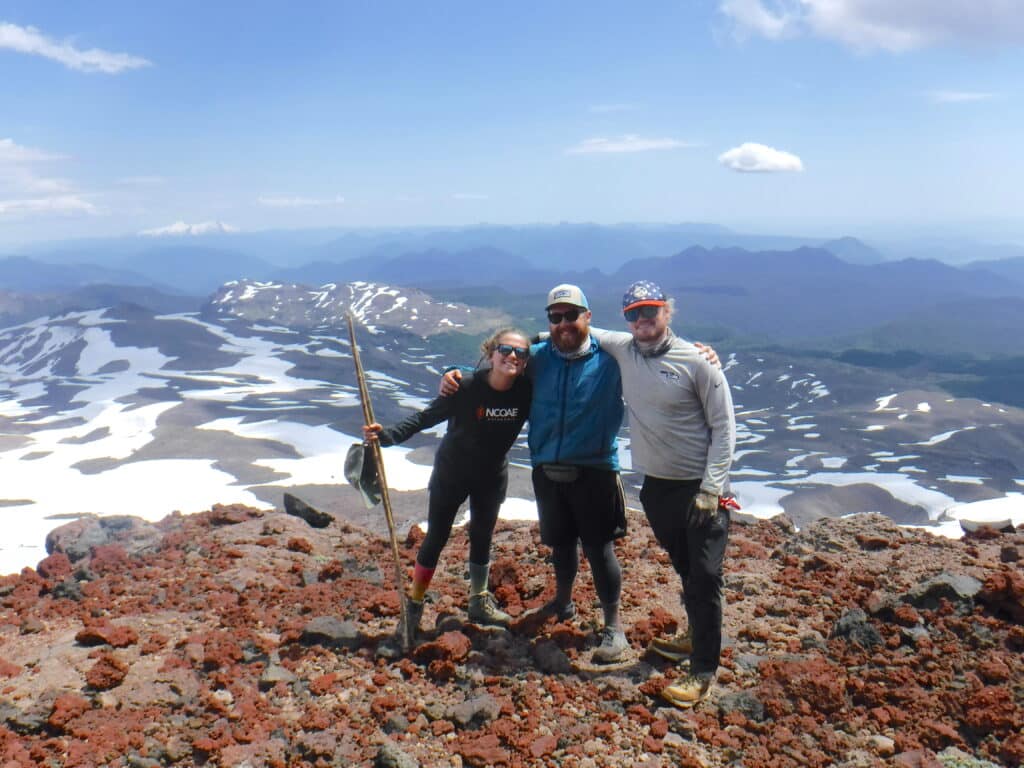
We can even help you pitch your trip as a benefit to your employer. Who knows? Adventure-based education may be the future for your organization’s workplace employee engagement. (more…)
Avoiding Target Fixations and Incident Pits in the Backcountry
Risk Management“Look where you want to go!”
I have conveyed this message to wilderness course participants countless times, shouting, screaming, and using hand signals when necessary. Sometimes I’m yelling above the roar of a set of rapids or the sound of an adjacent waterfall.
“Look where you want to go!”
I emphatically issue the same advice while watching climbers rappelling down a cliff, or verbally guiding a student on a mountain bike through a sketchy section of trail. In each case, the point of my shouting is to get the students to stop looking at the obstacle.
“Look where you want to go” really translates as “Stop looking at the obstacle! Don’t fixate on the hazard!”
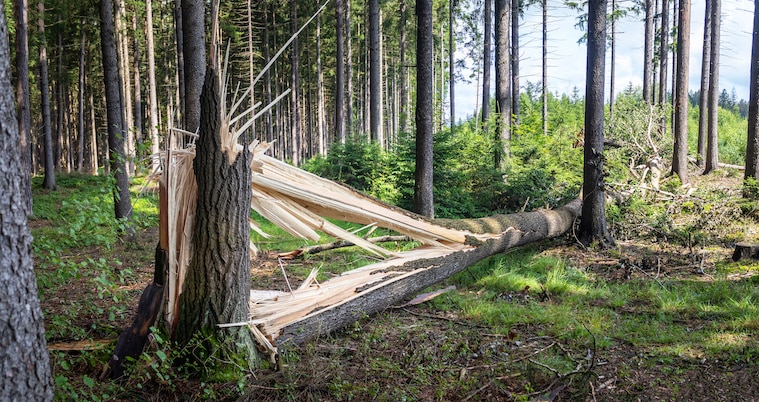
And it doesn’t matter if you’re a Wilderness First Responder approaching the scene of a backcountry incident, or a student on a wilderness course attempting to navigate a perceived hazard or obstacle, looking too closely at a hazard you want to avoid can be very dangerous.
At first glance — no pun intended — you might think it wise to actually look closely at the hazard you want to avoid. No argument there. You absolutely need to identify obstacles, especially in the backcountry and other places considered Wilderness. In fact, identifying an obstacle is a key factor in remaining safe.
But here’s the thing: (more…)
When it Comes to Wilderness, Is it an Adventure or Experience?
Outdoor EducationYears ago, I was working in wilderness-based setting with a group of gang members who were attempting to break away from the often-violent lifestyle in which they found themselves. During a break our programming, I asked a loaded question.
“Anybody want to tell me about their tattoos and what they mean?”
The 30 or so gang members, hailing from a variety of organizations — MS-13, Bloods, Crips and Latin Kings — stared up at me. Hard. One participant in the back shouted, “Nobody gives a shit about our tattoos!”
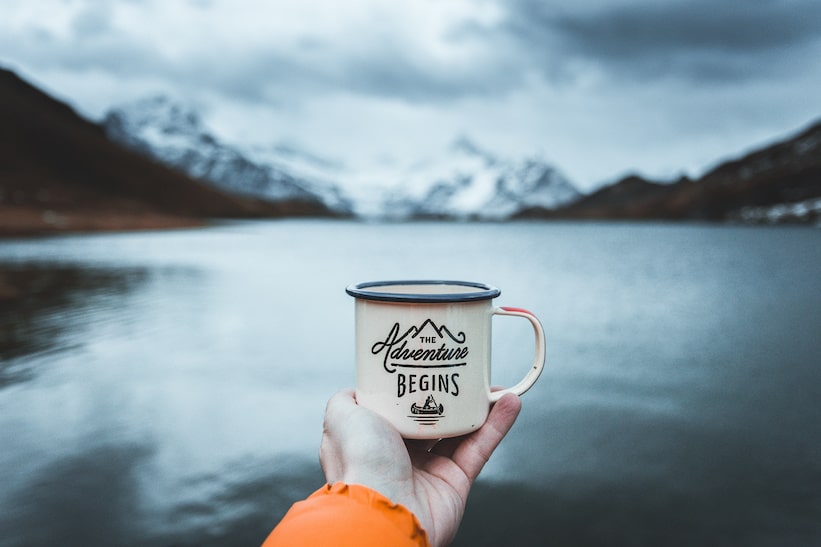
When I burst out laughing, I was met with even harder stares, I realized an explanation was in order. I told the participants that everyone wants to know about their tattoos. They’re just too afraid to broach the subject.
I said that if we were to put a person covered in tattoos from head to toe on a scale, and then somehow remove all that ink on their skin and weighed them again, the weight change would probably be undeterminable.
If, however, that same tattooed gang member walked into a job interview, the weight of those tattoos — what they represented — would be a thousand pounds. So again, I asked them to tell me the stories and histories behind their tattoos. What followed was an enlightening experience. The curtain was pulled back and these folks opened up and shared the significance behind their body art.
My point is this: Words and images have weight.
Words and Images Have Weight
I tell you this because a leading outdoor industry retailer — REI (Recreational Equipment, Inc.) — recently announced an adjustment to their marketing, based on patterns they say are cropping up in our culture today. REI’s announcement that the company is rebranding its tour business from REI Adventures to REI Experiences caught many people I know off guard, myself included.
It’s an effort, they say, to increase their participant base to three million clients a year. The company’s officers and administrators fear the word “Adventure” is getting in the way of its effort to grow the business.
So, what is it we think when a brand that builds a $3.7-billion-a-year business around catering to adventurers decides to change the word to experiences instead? Is adventure too heavy of a word? Is the term adventure dangerous? Are we — both consumers and outdoor community members — becoming soft?
What comes next? Will the (more…)
The Role of the Wilderness First Responder During Water Rescues
Wilderness Medicine TrainingIt may surprise you to learn that drownings — along with heart attacks and falls — are among the leading causes of death for those who venture into the wilderness for recreation or education in the United States.
Statistics show that there are nearly 4,000 fatal drownings each year in the United States, with a little more than 8,000 nonfatal drownings. These figures include boating-related drownings. In fact, the threat of drowning is so prevalent that the first edition of the NCOAE Wilderness Medicine Field Guide devotes an entire section to Environmental Submersion and Drowning Injury.
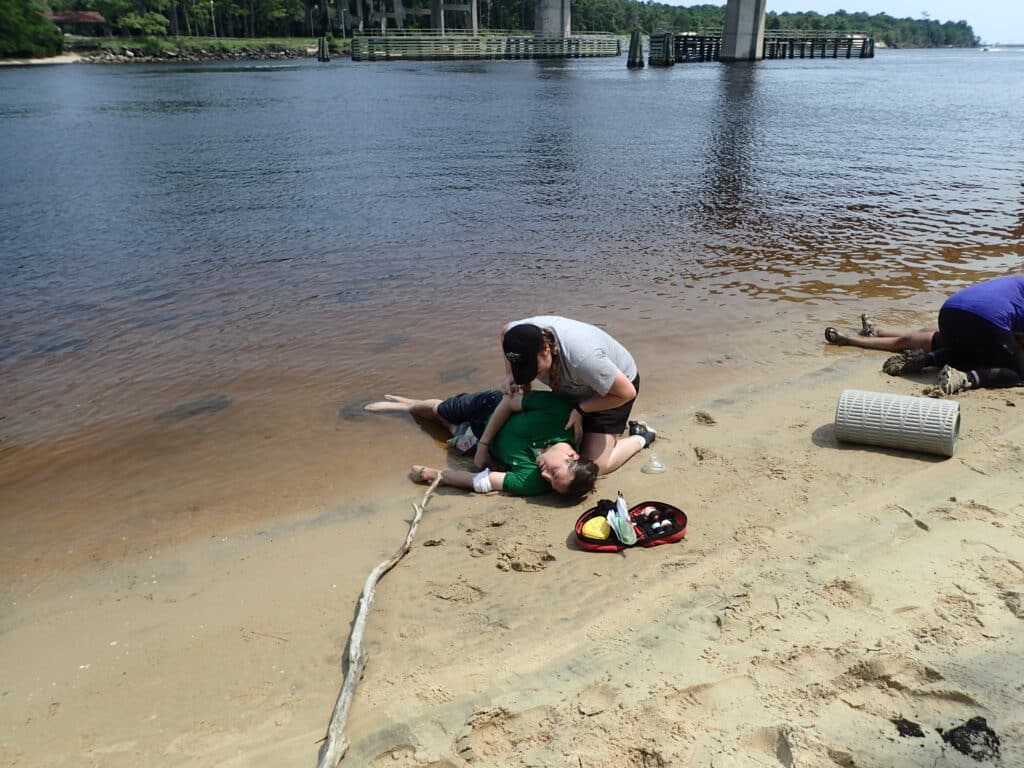
Of course, it’s during the spring and summer that most outdoor explorers are on the water, including those participating in backcountry expeditions. Lakes, rivers and streams provide much-needed relief in the backcountry on a hot August afternoon and are sought-after destinations for many outdoor enthusiasts.
For those training to become Wilderness First Responders (WFR) and those participating in Wilderness First Aid (WFA) training, a major consideration is assisting with medical emergencies that occur on or near the water. (more…)
Outdoor Industry Jobs Require Personal Experience and Certifications
Outdoor Educator TrainingProfessional development — learning that allows you to earn or maintain professional credentials — is key to career planning, especially when it comes to considering a career in the outdoor adventure and education industry. Much more than participating in a bunch of classes, our sector of the outdoor industry looks favorably on applicants with wilderness medicine training and certification, skills training and certification, and hands-on guiding and expedition leadership experience.
Truth is, we here at NCOAE found that operating an adventure education company during a health pandemic was challenging. And staffing our AEE-accredited organization with highly experienced instructors became increasingly difficult but not impossible.
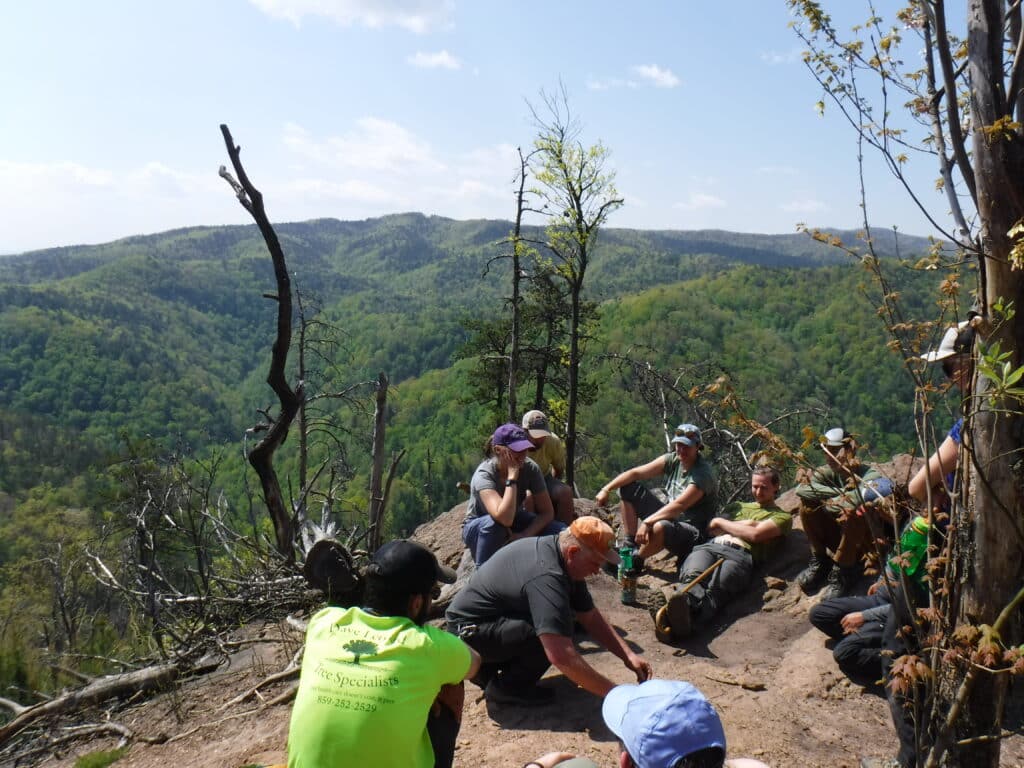
Like other industries, we suffered a staffing shortage, and yes, some of our existing staff left to pursue other pathways. But what we’ve noticed lately is a lack of experience from some people who thought working in the outdoors would — quite literally — be a walk in the park.
Many of these would-be outdoor educators and guides decided that sitting on a couch while looking at photos and films of wilderness expeditions was a suitable alternative for actually going out and experiencing the outdoors.
This potential pool of applicants backed out and went the way of the “Instagram Adventurer” or the “Armchair Explorer.” And in talking with our colleagues across our sector of the outdoor industry, we’re not alone in seeing this trend. Nearly all outdoor adventure and education organizations are taking pause and evaluating the future of trainings, staff recruitment, and what it means to be qualified to head out into “wild places.”
Regardless of what other organizations choose to do about their staffing challenges, NCOAE will not budge on what is required of our field instructor and outdoor educator candidates. Hands-on experience coupled with recognized industry certifications still matter and always will.
If you’re interested in a seasonal or full-time job in outdoor education, here are my recommendations on how to proceed. (more…)
Applying the Principles of ‘Leave No Trace’ to Daily Life in an Urban Setting
UncategorizedWhat is Leave No Trace?
The idea behind Leave No Trace is to embrace specific wilderness stewardship values in order to protect our backcountry areas for generations to come. Back in the early 1940s, Robert Baden-Powell, founder of the world Scouting movement, said, “Try and leave the world a little better than you found it.” Over time, this morphed into, “Always leave your campground cleaner than you found it.”
Fifty years later, in the early 1990s, that Leave No Trace concept was immortalized through an educational curriculum developed by the United States Forest Services in partnership with NOLS (the National Outdoor Leadership School). The outcome was an agreed framework for instilling awareness on the part of wilderness travelers to interact with nature in a manner that reduces human impact.
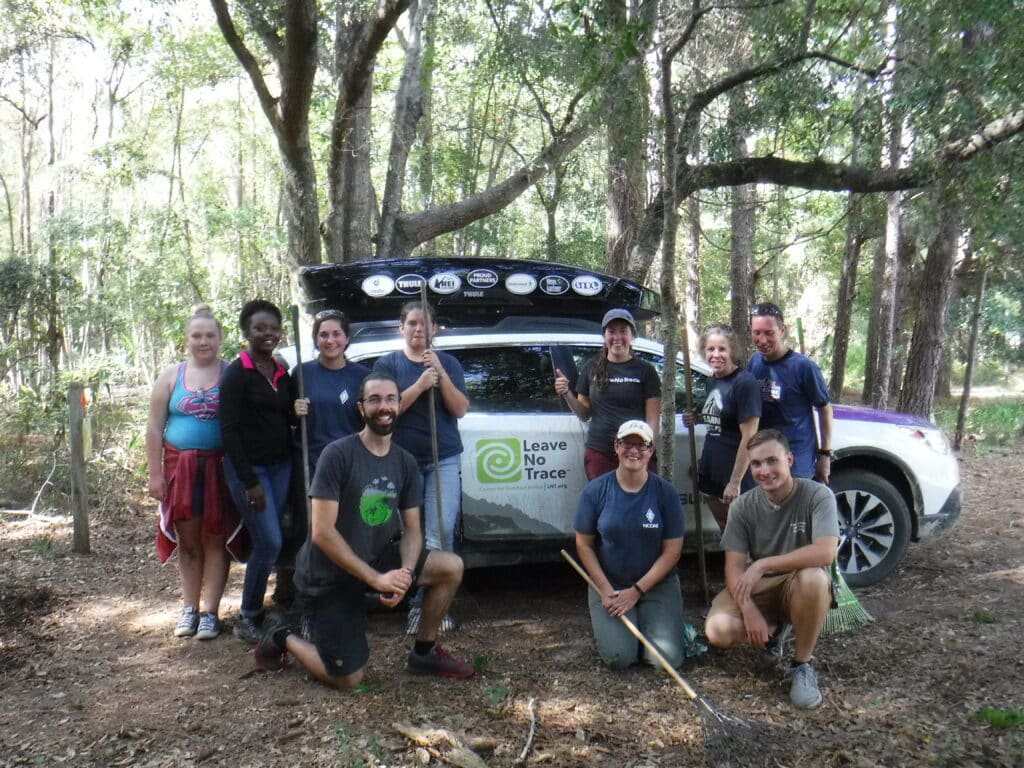
What is The Importance of Leave No Trace?
The idea behind Leave No Trace is to embrace specific wilderness stewardship values in order to protect our backcountry areas for generations to come. Today, that program — run by the Leave No Trace Center for Outdoor Ethics in Boulder, Colorado — impacts more than 15 million people in the United States and dozens of other countries with conservation initiatives, education, training, and research.
Baden-Powell’s simple sentiment more-or-less condenses the seven principles behind today’s Leave No Trace (LNT) program. The well-known LNT’s principles are: (more…)
TALK TO US
Have any further questions about our courses, what you’ll learn, or what else to expect? Contact us, we’re here to help!